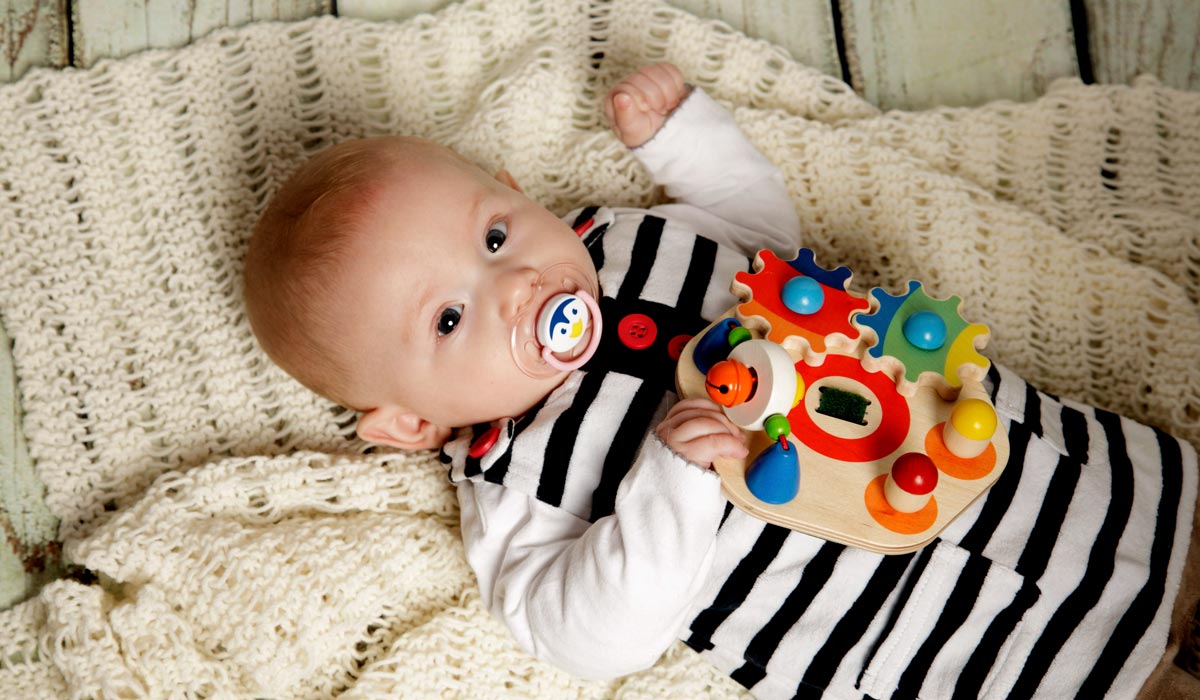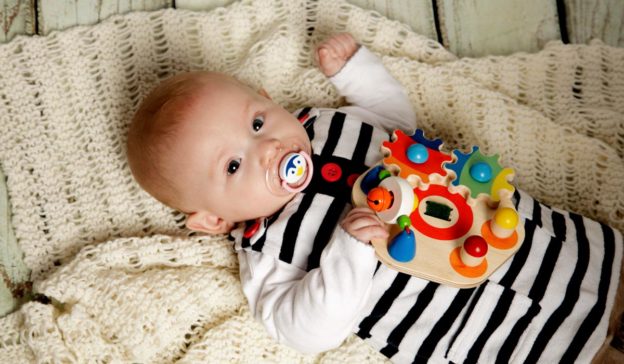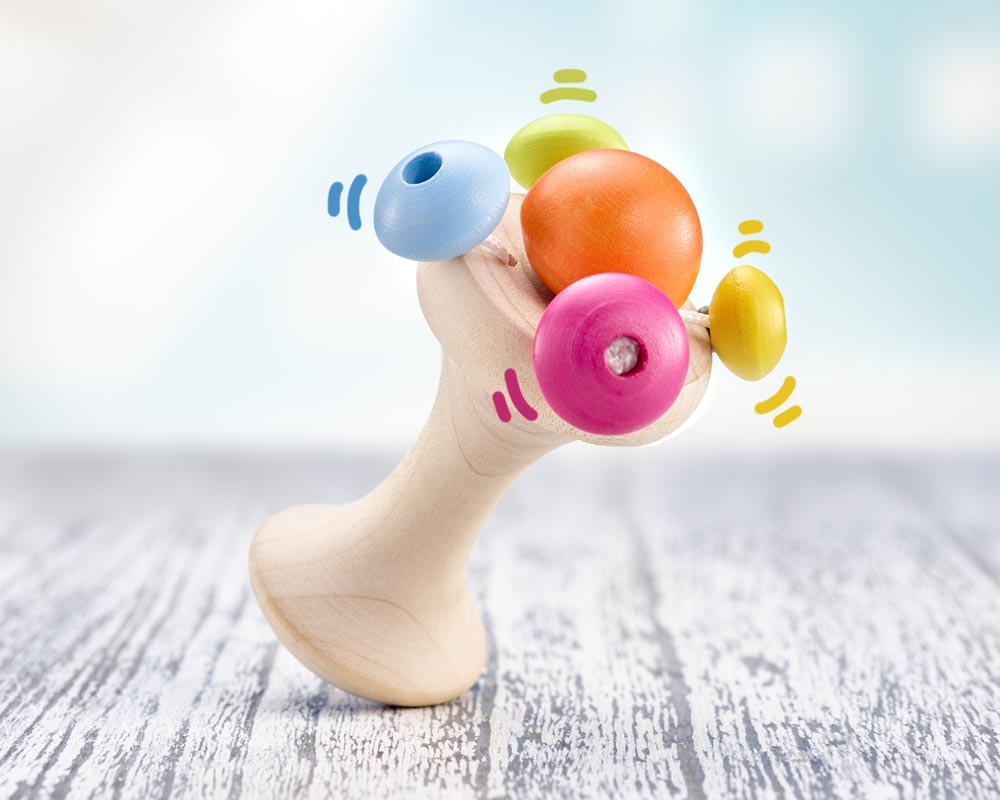Two months have passed. Your child is no longer a newborn baby, but an infant. They are becoming more and more active and their interest in exploring their own abilities grows with each passing day. Here are the most significant milestones in their development.

Body movements
Your infant’s movements are becoming increasingly fluid and no longer look as jerky and wooden as they did in previous weeks. This is because your baby is getting more familiar with their body every day, and knows how to lift their arms and legs.
Your child has a natural urge to move, which you should very gently encourage. Don’t force anything; the important thing is that your child shows an interest in performing certain exercises. You may, for instance, encourage your child to lift their head when they are lying on their back. This is a big challenge for babies at first. Hold your hands out to your child and see whether they reach out to you of their own volition. In order that you don’t strain your baby’s muscles, unfamiliar or strenuous movements should only ever be practised for a short time.
Grasping and listening
Your baby can open their fists wider and wider and deliberately move their hands in the direction of objects that they want to explore. They now want to touch everything that is immediately in front of their face.
Colourful grabbing toys in particular arouse their interest and are enjoyable to hold between the fingers. It is only consciously letting go of objects that your baby is still struggling with; they are likely to drop things by accident.
Your baby can see and, above all, also hear a little better every day. For this reason they find pram chains and rattles with small bells particularly exciting.
Communication with your baby
This improved sense of hearing also facilitates communication between parents and baby. Your baby reacts faster to familiar voices and can be calmed more easily by them. More and more often, they greet their parents with a joyful smile.





